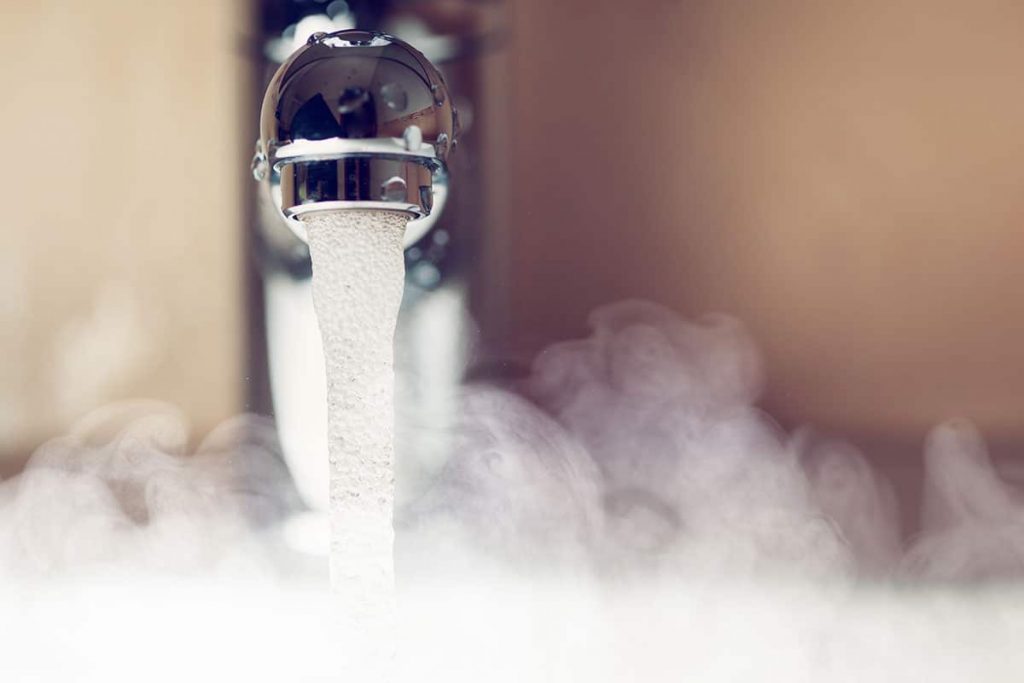With the cold weather arriving in Southern Ontario, it’s essential for commercial property owners to keep their building’s heat flowing as energy-efficiently as possible.
The heart of your building’s heating system is your boiler. Its prime purpose is to convert gas or electrical energy to heat energy and transfer that heat energy to the heating fluid used in your building. Although some boilers are very large, they do come in all sorts of heating outputs designed specifically for your buildings need. Either steam or hot water will be produced and circulated in your building’s pipe systems until arriving at the radiators, which will, in turn, heat the building.
An efficient boiler keeps your tenants comfortable and safe without wasting energy. However, there are a few warning signs to be aware of that could indicate a problem with your boiler that needs to be addressed:
- Water Leaks: Leaking water is one of the more common signs of a problem with your boiler. Water leaks cause the boiler to consume more energy to maintain temperature settings and is unsafe to operate. If unchecked, your boiler may rupture, so be sure to contact your HVAC service provider at the first sign of water leakage.
- Strong, Unexpected Smells: If you go near the HVAC’s boiler system and smell anything like a strong chemical or metallic smell, this could signal a severe and potentially dangerous problem – especially if the system runs on gas. There is also a potential issue of carbon monoxide being generated because of the poor operating efficiency, which could present a danger to the health and safety of everyone in the building. Using CO detectors in the boiler room can help you identify any immediate risks, but in any case, unusual smells should be reported to your HVAC service provider immediately.
- Unusual Noises: Boilers are whisper-quiet when they’re operating normally. Certain noises accompany such functions as the burners firing up. However, if you hear rattling, grinding, whistling, or other sounds that seem unusual, it should be investigated immediately by your HVAC service provider.
Problem noises could signal issues such as:
- Internal damage to the heat exchanger’s structure
- Sediment that has blocked the pipework
- A broken or inefficient draft fan
- A circulating pump that has broken or been damaged
In many cases, these problems present themselves through the simple aging out of parts or poor boiler maintenance on newer systems. You can mitigate the risk of boiler issues in three ways:
-
- Improve Your Water Quality: Poor water quality can cause imbalance in PH, organic material, magnesium, bicarbonates, and chlorides to build up inside boilers and pipes. This buildup often causes blockages, leading to other system issues, such as reduced heat exchange efficiency, which increases your operating costs. The best way to prevent these issues would be to have the water quality tested by a professional who could recommend the appropriate solution, such as a water filtration system or chemical treatment.
-
- Upgrade Your Boiler: Some buildings may have a boiler that’s too small or to big for the building’s requirements. When this happens, the boiler is not running at its peek efficiency or could be working overtime, leading to premature failure. Talk to a qualified HVAC technician who can tell you if your boiler needs an upgrade. Investing in a new hi-eff boiler will pay off in energy savings over a short period. There are also incentives from your natural gas utility provider to upgrade to a more efficient product.
-
- Professional And Regular Cleaning: The debris that will inevitably be found inside the boiler will need to be regularly cleaned before they have a chance to clog up the heating tubes and flue passageways. By having a professional regular maintain your boiler, as well as the rest of your HVAC system, you stand the best chance of staying on top of any serious issues.
The boilers in a commercial HVAC system will be the largest energy consumers by far. A comprehensive maintenance program will help ensure your entire HVAC system runs as smoothly as possible, keeping your tenants comfortable and minimizing your energy bills.
Read More : 5 Important HVAC Checks For Your Maintenance Team
When you need professional, reliable HVAC maintenance, service, or replacement, talk to the professionals at Springbank Mechanical Systems. Our trained, licensed HVAC technicians specialize in all brands and types of HVAC equipment, including hot water boilers, rooftop units, water-cooled heat pumps, cooling towers, circulating pumps, steam humidifiers, make-up air units, and much more.
Our goal is to take the work and worry about HVAC maintenance away from you so you can focus on other aspects of your business. We’re always happy to discuss how Springbank makes HVAC maintenance easier, safer, and more cost-effective for our customers. Feel free to contact us anytime with your questions.
Gregg Little, Paul DeThomasis, and Hugo Lopes are co-owners of Springbank Mechanical Systems. You can reach them at 905-569-8990 or via email at gregg@springbank.com, paul@springbank.com, or hugo@springbank.com.

